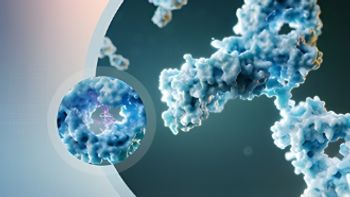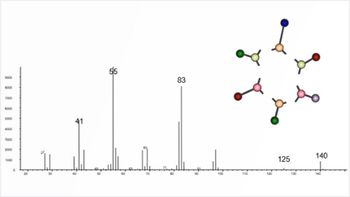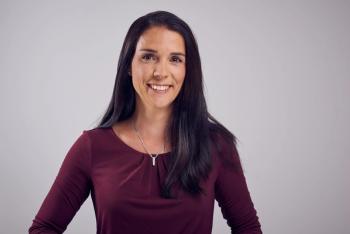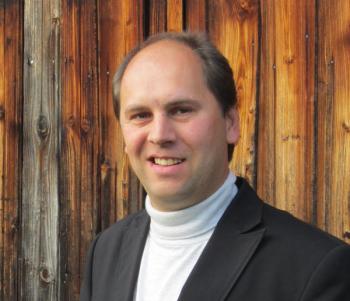
Silvia Radenkovic on Her Research and Passion for Scientific Collaboration
Silvia Radenkovic is a laboratory clinical biochemical genetics fellow at UMC Utrecht, the Netherlands and a member of Females in Mass Spectrometry (FeMS). She is currently doing a clinical fellowship where she is involved in diagnosing and helping treat patients with inborn metabolic diseases (IMD). Her research focuses on IMD such as congenital disorders of glycosylation (CDG), omics techniques such as tracer metabolomics, and different disease models.
Recently, we spoke with various members of FeMS about their work within the group and what Women’s History Month means to them (1). As part of our coverage, we sat with each interviewee to learn more about their work using mass spectrometry (MS) (2,3).
In this two-part interview, we spoke with Silvia Radenkovic, who is a biochemical genetics fellow at UMC Utrecht. Earning her PhD from KU Leuven (Belgium) and Mayo Clinic (USA), Silvia’s scientific interests include inborn metabolic disorders (IMD), like congenital disorders of glycosylation (CDG), omics techniques such as tracer metabolomics, and different disease models (e.g. fibroblasts, organoids, iPSC). In this first part of our interview, we spoke with Silvia about her research in using metabolomics for diagnosis and management of IMDs.
What drew you to becoming a laboratory clinical biochemical geneticist? Have there been any highlights during your PhD program that you would like to share with our audience?
I always knew that I wanted to do clinical work, so for me, it was easy to go into my fellowship. Growing up, I always thought I was going to be a medical doctor, and I really wanted to help people. During my bachelor’s studies in college, I got really interested into biochemistry and genetics, and I realized there is a very nice way to combine them both by doing metabolic genetics. So, I decided to pursue my further studies in that, and I did a master's in genetics, followed by a PhD. During my PhD I was introduced to metabolomics, and we used metabolomics for the first time in some IMD. During this time, I also got to learn a lot about science and analytical chemistry as well.
Regarding my PhD experience and what I would give as an advice to someone that is starting a PhD now, the most important thing about your PhD is your mentors and the people you work with. Make sure that you have good connections with them, because if you have good mentors, you can grow more. A supporting environment is a key to being able to think freely and develop as a scientist. The most important thing I would say when choosing a mentor is finding someone that that's going to support you, not just in your scientific journey, but your journey of you growing as a scientist and a person.
Can you explain what inborn metabolic disorders (IMDs) are and why researching them is important?
Inborn metabolic disorders are genetic disorders of metabolism. 1:1000 people are expected to be affected by an IMD. Patients with IMD have pathogenic variants (or otherwise called mutations) in genes that are important for the metabolism. For example, because of these mutations a certain enzymes might not work well, so the normal metabolic pathways that your body would use to produce energy will not work properly. Therefore, you could either have buildup of certain metabolites that could be toxic for you, or you lack the certain metabolites that you really need for your energy growth and so on. To detect these changes in metabolites, we use different techniques such as metabolomics. A lot of our patients have very different symptoms, from mild ones to very severe ones. Some of these disorders are treatable, and a lot of them are not. Unfortunately, most of these disorders are not understood well. This is why it is important to continue researching them. If we know more about these disorders, we can improve the diagnostics and treatment. Likewise, if we understand the metabolism better, we can also understand how to treat these disorders better as well. There’s a very big unmet need in the patient community, and I think I’ll be very happy if we can improve the diagnosing, treatment, and quality of life for those afflicted with these disorders.
References
(1) Acevedo, A. FeMS Members Reflect on the Meaning of Women’s History Month. LCGC International 2025.
(2) Acevedo, A. Changing Lives Through Vaccine Development: An Interview with Ezgi Gürler of FeMS. LCGC International 2025.
(3) Acevedo, A. Iulia Macavei of Evosep Discusses Her PhD Research and Her Role in Organizing FeMS Events. LCGC International 2025.
Newsletter
Join the global community of analytical scientists who trust LCGC for insights on the latest techniques, trends, and expert solutions in chromatography.




